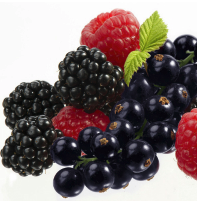Q: Winter seems to be when I get sick the most, and it derails my training. Any key pointers to staying healthy?
A: There a few aspects to consider when aiming to stay as healthy as possible; focus topics here include: antioxidants, recovery and sleep.
Antioxidants– are stable molecules that can help ‘mop up’ free radicals in our bodies and protects cells from oxidative stress (reactive oxygen species –ROS). When we eat anti-oxidant rich foods, there is reduced risk of fatigue, illness and injury, which directly enhances our training and ultimately our performance.
When high load endurance training occurs, free radicals are produced. We need antioxidants to protect the body’s cells from damage, which can have an effect on immune function. This stress also results in an inflammatory response, which is thought to play a role in cell signaling which ultimately leads to physiological training adaptation (you getting more endurance strength and speed).
Antioxidants that we ingest come in 2 forms: food based antioxidants such as a range of colourful fruits and vegetables and more potent foods such as blueberries, blackberries, currants, raspberries and tart cherry. The second is a supplement. Studies show conflicting evidence on whether supplements can be beneficial or hinder training adaptation. Some studies suggest that the benefit of whole food antioxidant intake provides a synergistic effect of the multiple nutrients in combination while preventing excessive intakes, which can blunt the exercise induced expression of important proteins after training. High doses of individual vitamins, such as vitamin C & E has been shown to block the beneficial effects of exercise – so the moral of this is MORE IS NOT ALWAYS BETTER.
Recovery
It can take up to 18-20 hours to fully recover from a high volume, training session even when the recommended nutrition strategies for recovery and hydration are followed. If you have a planned day off in your schedule- make sure not to ‘cross train’ at too high intensity and duration… that day is meant to let your body recuperate and recharge to get the most out your subsequent sessions.
Sleep
Inadequate sleep can reduce immune function, which can lead to increased risk of illness. Other aspects include changes in metabolism, appetite regulation, glucose metabolism, inflammation, pain perception, cognition and mood. Other studies indicate that athletes in severe calorie restriction can have poor quality sleep. Research has shown that when we are sleep deprived we are hungrier and have larger appetites; this is due to a decrease in leptin, a hormone that inhibits food intake and an increase in ghrelin, an appetite-stimulating hormone that leads us to crave mostly carbohydrate rich foods.
Tryptophan, one of the least abundant amino acids (building blocks of our body), is one of the precursor components in melatonin production; consuming some tryptophan rich foods like turkey or pumpkin seeds may help improve sleep quality.
Tart cherry juice is an antioxidant that has anti –inflammatory properties and helps increase melatonin levels. Research indicates it may improve sleep time and quality.
Summary tips for optimal immune health
- Colour your plate with a variety of fruit and vegetable colours, especially in high, intense training load periodization
- Consider an antioxidant supplement in addition to your colourful diet with increased immune susceptibility, ie. Travelling overseas for competition
- Vitamin C is water soluble so to better absorb what your body needs, split your 500mg tablets in ½ and take ½ tablet, 2 times/day for 10 days
- Aim for 8hr or more of sleep per night, consider a nap if you haven’t met this
- Avoid TV/screen time in bed
- Limit afternoon caffeine intake
- Consider a turkey meat dinner and or tart cherry juice
